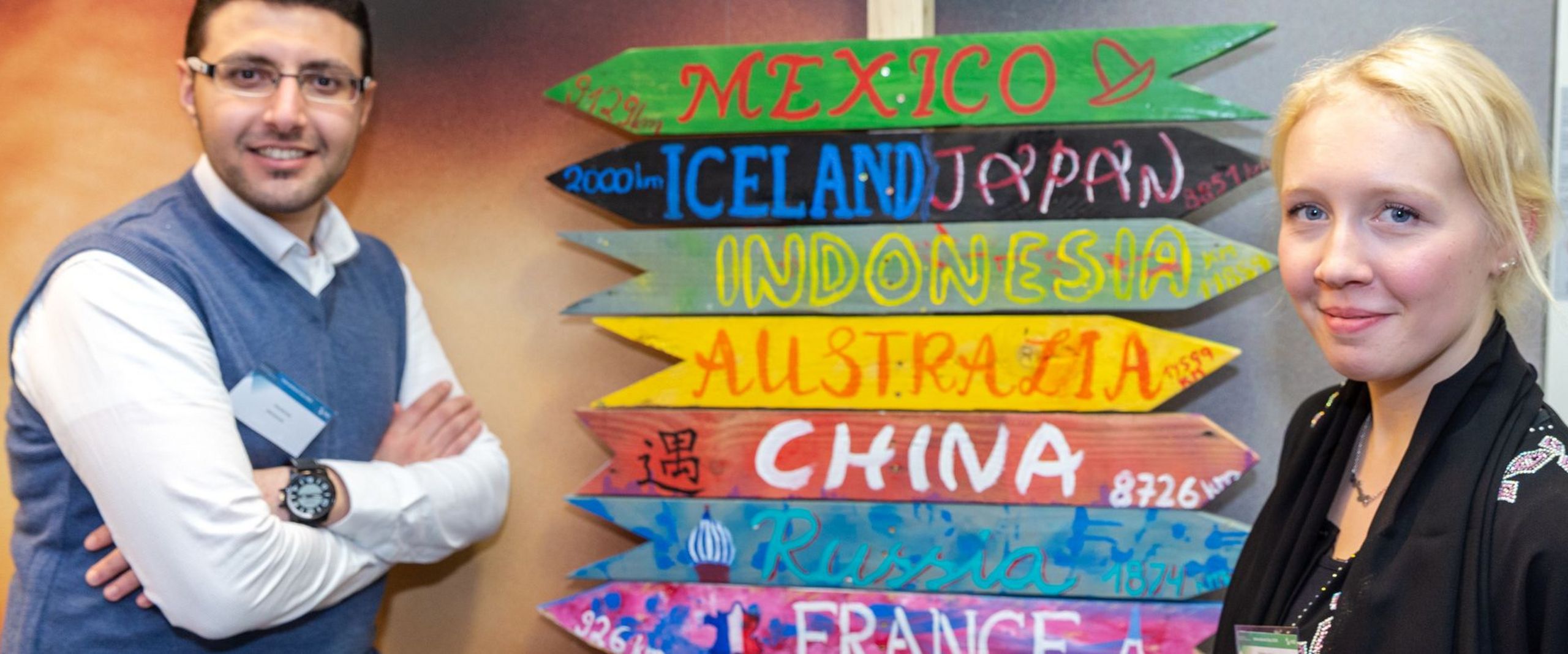
Organising your studies
Off to the big wide world! Internationality is a hallmark of HSB and a stay abroad is an integral part of many degree programmes. But even if you are studying in a degree programme that does not include a compulsory semester abroad there are still lots of opportunities to gain international experience during your studies.
Where do you want to go? What needs to be done in advance? What counselling and financing options are there?
Reports, contact with the university, recognition of courses and internships
Recognition of the stay abroad and follow-up
Stays abroad are a compulsory part of the curriculum in HSB's international degree programmes. These can be stays at a partner university or work placements with companies or organisations; in some international degree programmes, both are compulsory. The timing and duration of the stay abroad are specified in the examination and study regulations.
The ECTS credits you earn during the semester abroad will be recognised for your studies at HSB. Information on the possibility, preparation and allocation of places at partner universities can be obtained from the International Office of your faculty.
In degree programmes without an integrated stay abroad, you can voluntarily undertake a study semester or a work placement with companies or organisations abroad.
You are free to decide when and where you spend your optional stay abroad. A good time is usually after the third or fourth semester. It's best to ask your lecturers for advice. You are free to choose your university. You can also study at a university with which the HSB has not concluded a cooperation agreement.
Important: Contact the Decentral International Office (DIO) of your faculty or the head of your degree programme before your stay abroad. Make sure that all or part of the courses you have done abroad can be credited to your degree programme.
A placement in Germany may already be integrated into your study programme. Alternatively, you can also undertake a voluntary placement abroad. This allows you to experience the professional and business world of the host country at first hand and thus gain insight into completely different areas of life and groups of people than when studying at a foreign university. Potential future employers particularly like to see that you have gathered experience abroad in the context of a work placement, and you will of course also acquire job-related language skills.
If you do opt to arrange for such work experience abroad yourself, be aware that the authorities in the country concerned may consider it to be just a normal job and that there is a difference between what you see in the context of your studies as a placement and what in other countries may be considered to be a job. Placements or internships are either not paid at all or poorly paid. Jobs are often better paid. In the case of a placement, employers are usually prepared to train you and to spend their employees' working time to teach you something. If you take a job abroad, you may have to work full time after a short training period. From a professional point of view, the responsibilities and competences of the placement and the job abroad often overlap. In this context, though, the question surrounding the visa and any work permit required is of great importance.
If you cannot or do not want to spend a semester or year abroad for personal reasons, you can sign up for language courses in another country instead. In addition to many language schools, foreign universities also offer language and subject-related courses lasting several weeks with accommodation in student halls of residence or with local families.
A summer school is a course offered by a university for several weeks during the lecture-free period. In most cases, these are one-week to two-month academic courses for which a fee is charged. Topics and contents vary from university to university.
There is no central overview of all the summer schools offered worldwide. As a rule, though, you can find information on the websites of the foreign university.